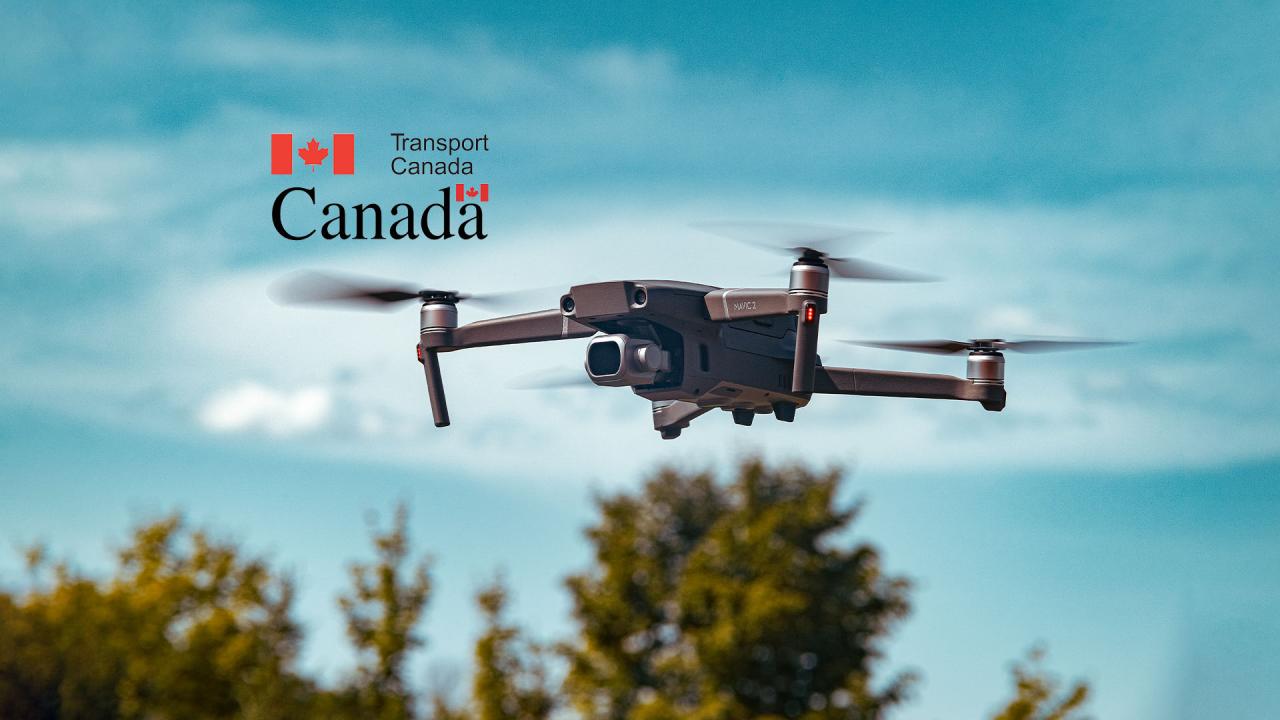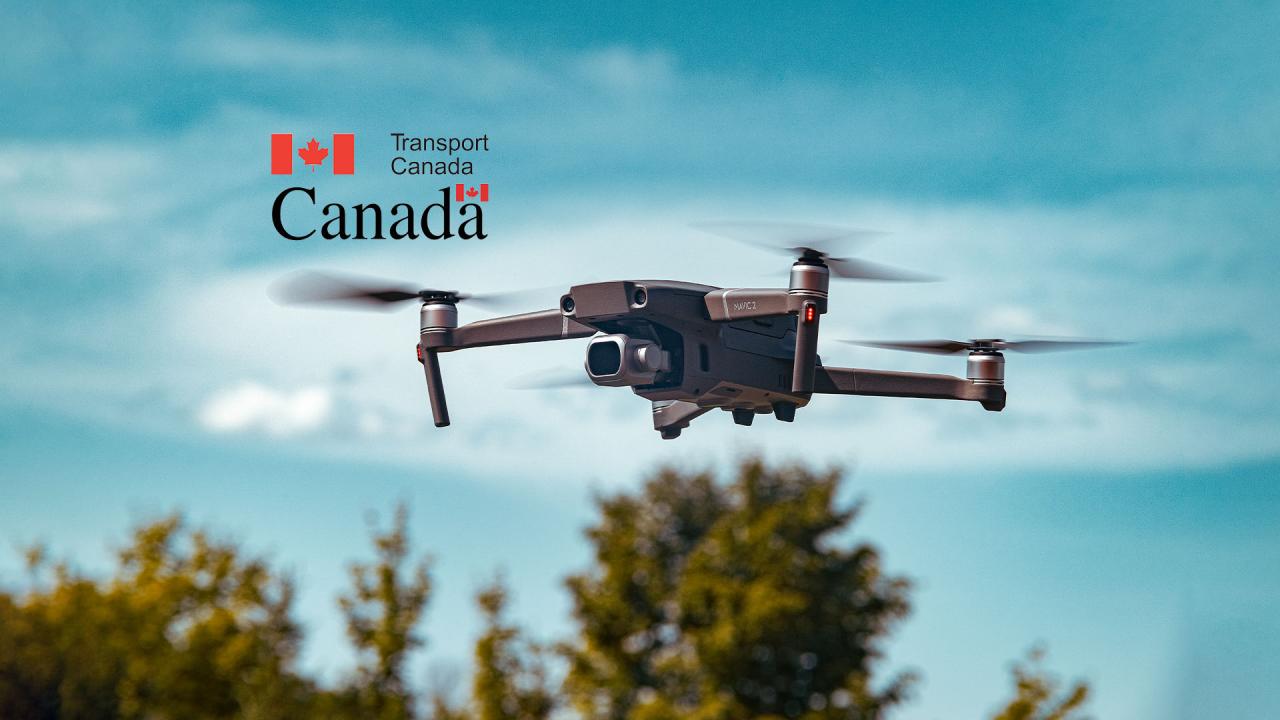Transport Canada drone licenses are essential for operating drones legally in Canada. This guide provides a comprehensive overview of the different license classes, application processes, regulations, required training, insurance considerations, and technological aspects. Understanding these requirements is crucial for safe and compliant drone operation, ensuring both personal safety and adherence to Canadian aviation laws.
Obtaining a Transport Canada drone license is crucial for responsible operation, ensuring compliance with regulations and safety standards. Recent incidents, like the one highlighted in this news report about a drone shot down in NJ , underscore the importance of understanding these rules. Proper licensing helps prevent such situations and promotes safe airspace management, ultimately contributing to the overall safety of drone operations.
We will explore the various license categories, detailing the weight restrictions, operational limitations, and necessary training for each. The application process, including required documentation and fees, will be explained step-by-step. Furthermore, we will delve into crucial aspects like drone regulations, insurance, and equipment maintenance, equipping you with the knowledge to operate your drone responsibly and legally.
Transport Canada Drone Licenses: A Comprehensive Guide
Navigating the world of drone operation in Canada requires understanding Transport Canada’s licensing framework. This guide provides a detailed overview of the different license classes, application procedures, regulations, required training, insurance considerations, and technological aspects to ensure safe and compliant drone operation.
Types of Transport Canada Drone Licenses
Transport Canada offers several drone license classes, each with specific weight limits, operational restrictions, and training requirements. Understanding these differences is crucial for selecting the appropriate license for your needs.
The Basic Operational Certificate (BOC) is designed for smaller drones, while the Advanced Operational Certificate (AOC) allows for more complex operations. Specific requirements and limitations vary based on the certificate type. Furthermore, certain operations might require additional authorizations or exemptions, depending on the environment and intended use.
| License Class | Weight Limits | Operational Restrictions | Required Training |
|---|---|---|---|
| Basic Operational Certificate (BOC) | Generally under 25kg, specific limits vary based on sub-categories | Limited to daytime operations, visual line of sight, restrictions on population density, specific airspace limitations | Online training and knowledge test |
| Advanced Operational Certificate (AOC) | Varies widely, may include larger drones beyond 25kg, subject to specific approvals | Potentially allows for beyond visual line of sight (BVLOS) operations, night operations, and operations in more complex airspace, but requires comprehensive risk assessments and specialized approvals. | Significant practical and theoretical training, including advanced risk assessment and flight planning. |
Application Process for a Transport Canada Drone License

Applying for a Transport Canada drone license involves several steps. The process is largely online, streamlining the application process. However, accurate and complete documentation is essential for a smooth application.
- Create an account on the Transport Canada online portal.
- Complete the application form, providing accurate information about yourself, your drone, and intended operations.
- Upload the required documentation, including proof of identity, training certificates, and drone registration information.
- Pay the applicable fees.
- Await processing and approval of your application.
Required documentation typically includes proof of identity, such as a driver’s license or passport, and proof of completion of the necessary training. The application fees vary depending on the license class and may include additional costs for specific endorsements or authorizations.
Drone Regulations and Operational Rules
Compliance with Transport Canada’s drone regulations is mandatory. These regulations cover various aspects of drone operation, ensuring public safety and preventing airspace conflicts. Understanding these rules is crucial for responsible drone piloting.
- Maintaining a safe distance from people and property.
- Avoiding flight over densely populated areas without appropriate authorization.
- Respecting airspace restrictions around airports and other sensitive locations.
- Operating only during daylight hours unless specifically authorized for night operations.
- Keeping the drone within visual line of sight.
Penalties for violating drone regulations can range from fines to license suspension or revocation. Detailed information on specific regulations and penalties is available on the Transport Canada website.
Required Training and Knowledge for Drone Pilots, Transport canada drone license
Becoming a licensed drone pilot requires demonstrating both theoretical knowledge and practical skills. Transport Canada Artikels specific requirements for training and competency. This training ensures safe and responsible drone operation.
- Understanding of airspace regulations and restrictions.
- Knowledge of emergency procedures and safe flight practices.
- Proficiency in pre-flight checks and maintenance.
- Ability to operate the drone safely and effectively.
Several approved training providers offer courses that meet Transport Canada’s requirements. A list of these providers is available on the Transport Canada website. Essential resources for drone pilot education include Transport Canada’s official publications, online forums, and industry best practices.
Drone Insurance and Liability
Drone insurance is essential for licensed operators to protect themselves against potential liabilities. Various insurance options are available, catering to different needs and risk profiles. This insurance safeguards against potential financial losses from accidents or damages.
- Damage to third-party property.
- Injury to a person caused by a drone.
- Loss or damage to the drone itself.
- Legal liability arising from an accident or incident.
The type and level of coverage needed will depend on the specific operations being conducted. It’s crucial to carefully consider the potential risks associated with drone operation and select insurance coverage that adequately addresses those risks.
Technology and Equipment Considerations

The type of drone permitted depends on the license class. Maintaining drone equipment and conducting regular inspections are crucial for safe operation. Registration of drones with Transport Canada is also a mandatory requirement.
| Check Item | Pass/Fail |
|---|---|
| Battery level | |
| Propeller condition | |
| GPS signal strength | |
| Gimbal functionality | |
| Camera operation |
Registration ensures that Transport Canada has a record of your drone and its operator, aiding in investigations and emergency response.
Renewing a Transport Canada Drone License

Renewing a Transport Canada drone license is a straightforward process, but requires timely application to avoid interruption of operations. The renewal process generally involves submitting an application and paying the renewal fee. Understanding the timeline is crucial for avoiding delays.
Requirements for renewal typically include demonstrating continued competency and compliance with regulations. Changes in regulations might necessitate additional training or updates to operational procedures. Staying informed about regulatory changes is essential for maintaining a valid license.
Successfully navigating the world of Transport Canada drone licenses requires a thorough understanding of regulations, training requirements, and operational best practices. By familiarizing yourself with the information presented in this guide, you can confidently and legally operate your drone within Canadian airspace. Remember to prioritize safety, adhere to all regulations, and stay updated on any changes to the licensing and operational guidelines to ensure continued compliance.
Expert Answers
What happens if I fly my drone without a license?
Operating a drone without the appropriate license can result in significant fines and legal penalties.
Obtaining a Transport Canada drone license is crucial for responsible operation. Before you fly, consider checking the weather and local conditions; for example, you might want to view a live feed like the one available at the port dover live camera to assess the area. Understanding these factors helps ensure safe and compliant drone flights, which is a key component of maintaining your Transport Canada license in good standing.
How long does it take to get a Transport Canada drone license?
Processing times vary, but generally, expect several weeks from application to license issuance.
Can I use my drone for commercial purposes with a recreational license?
No, commercial drone operations require a separate, more stringent license.
Where can I find approved drone training providers?
Transport Canada’s website lists approved training organizations.
How often do I need to renew my drone license?
Renewal requirements are Artikeld on the Transport Canada website and typically occur every few years.
